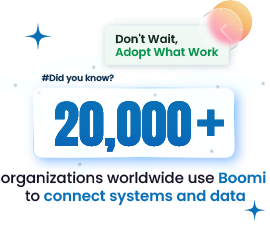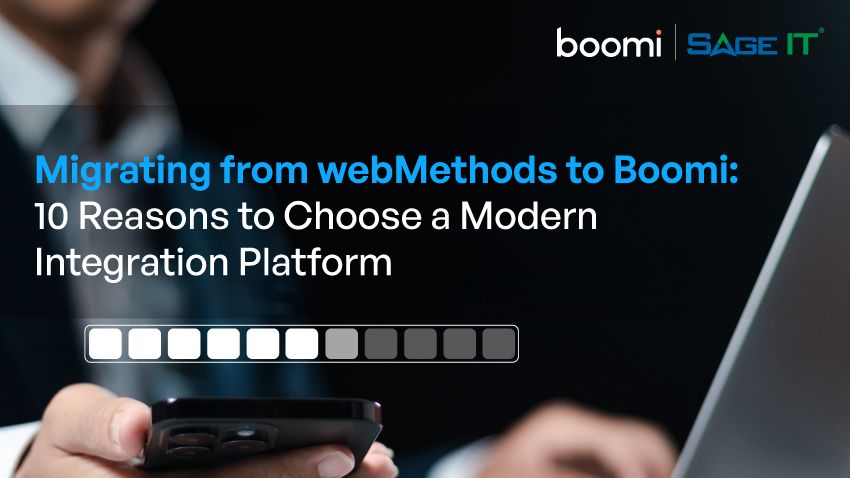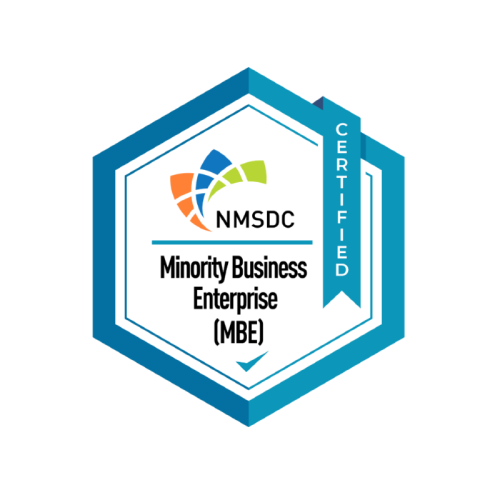“Managing multiple systems without a reliable integration platform often creates disjointed workflows, data inconsistencies, and operational delays. As businesses grow, the burden of maintaining alignment across systems like sales, finance, and customer service becomes more demanding. Boomi’s integration framework addresses these challenges, offering features like data partitioning, batch processing, and pre-built connectors that support communication across systems.
By automating workflows and maintaining performance, Boomi allows businesses to scale effectively, eliminating the bottlenecks that come with manual processes. In this blog, we will look at how Boomi transforms integration management, helping organizations overcome the hurdles of disconnected systems and achieve greater operational efficiency.
What Makes a Large-Scale Boomi Integration?
High Data Volume
Managing large datasets is a reality for any large-scale operation. With Boomi, integration processes handle large datasets across multiple systems while maintaining performance.
Using Boomi’s data partitioning and batch processing, high data volumes can move between systems without disruptions, allowing your business operations to continue without interruptions.
Complex Workflows
Managing complex workflows across different systems can bring its own set of challenges. Boomi supports the design of integrations that handle intricate business processes efficiently.
With Boomi’s drag-and-drop interface, you can orchestrate multi-step workflows and automate tasks, keeping all your systems in sync, from sales to finance to customer support.
Diverse Systems Integration
Many businesses rely on a mix of on-premise and cloud systems, complicating integration. Boomi offers universal connectivity, allowing connections to Microsoft Dynamics AX, Oracle Fusion Cloud, SAP Warehouse Management, and more without the need for custom coding.
With Boomi’s pre-built connectors, integrating across your entire tech ecosystem becomes a structured and straightforward process.
Global Scalability
For organizations with operations across regions, scaling integrations while meeting local regulations like GDPR and CCPA is critical.
Boomi supports global expansion with features for data localization and regulatory management, making it easier to handle compliance challenges as your business grows and faces regional data requirements.
Challenges in Managing Boomi Integrations
1. Data Velocity and Performance
Handling high-speed data transfers across multiple systems presents a challenge, especially when managing large volumes in real-time. The risk of data bottlenecks, slow processing, or even data loss becomes more prominent as the velocity of transactions increases.
Maintaining consistent performance while managing this flow of data can become a complex task, particularly in environments with high-demand applications.
2. System Diversity
Organizations often work with a variety of systems, each with different protocols, data formats, and APIs. Integrating these diverse systems into a unified workflow creates a challenge, as the systems must communicate and exchange data in a consistent manner.
This diversity often leads to compatibility issues, requiring careful coordination to keep data and processes aligned across different platforms.
3. Scalability
As organizations grow, their integration needs also expand. Scaling integration processes to meet the demands of increased data, more applications, and additional systems without disrupting ongoing operations can be difficult.
Integrations that worked well at a smaller scale may start to falter under heavier loads, leading to potential failures or reduced performance as the system struggles to keep up.
4. Security and Compliance
Managing sensitive data during integrations requires a strong focus on security. Ensuring that data remains protected while complying with various regulatory standards like GDPR or HIPAA can be a complex and evolving challenge.
With the increase in data breaches and privacy concerns, maintaining strict control over data while ensuring compliance becomes a critical task during integration processes.
5. Error Handling and Recovery
Errors are inevitable in any large-scale integration. These can range from data mismatches and processing failures to system downtime, all of which can disrupt business operations.
Handling errors promptly and recovering from them without losing data or causing delays can be difficult, particularly when the integration spans multiple systems and environments, where identifying the root cause is often not straightforward.
Best Practices for Efficient Boomi Integration Management
Plan for Scalability from the Start
When building your Boomi integration framework, it’s important to prioritize modularity and reusability. Designing processes that can easily expand as your system grows minimizes headaches later on.
Boomi’s process libraries allow you to create reusable components, making it easier to manage expanding requirements. Think of each integration as a block that fits effortlessly into the larger picture—future-proofing your setup.
Leverage Boomi’s Advanced Features
Boomi offers advanced tools like shared components and environment extensions that organize complex integrations. With shared components, you reuse integration patterns, keeping your workflows flexible and adaptable.
Boomi’s process libraries also support this by enabling the creation of modular integration processes, giving you more control. These features support better management and consistency across projects.
Continuous Testing and Quality Assurance with Boomi
Automated Testing: Boomi’s built-in testing features support a process-driven approach at every stage of your integration lifecycle. By automating test runs, you eliminate the need for manual intervention, reducing the likelihood of errors.
This allows you to verify that each integration performs as expected, from development through deployment, giving you more confidence in the consistency of your system.
Version Control: Managing multiple integration versions presents its own set of challenges. Boomi’s version control gives you the capability to roll back to earlier versions if needed.
This feature protects your system from any unintentional changes, making updates and adjustments more secure while knowing that a stable version is always available for fallback.
Performance Optimization: To keep your integrations running at their best, Boomi’s performance analytics provide detailed insights into areas that need adjustments.
Regularly reviewing these metrics helps you adjust resources and refine processes to improve overall performance. By maintaining a continuous review process, you keep your integration functional and adaptable to shifting business needs.
Boomi Support and Managed Services for Ongoing Success Integrations
Training and Certification
Keeping your team equipped with the right knowledge is essential for managing integrations. Boomi’s training programs offer hands-on guidance for grasping the platform’s core features. Certification keeps your team ready to handle complex integrations without interruptions.
This investment in expertise helps your team stay aligned with Boomi’s detailed processes, avoiding gaps in executing critical tasks. Boomi training plays a key role when scaling your integrations.
Managed Services
For complex integration needs, Boomi managed services provide expert-level assistance to keep everything functioning optimally. With certified partners or Boomi’s direct services, you gain access to professionals experienced in troubleshooting, monitoring, and refining integrations.
This approach helps minimize risks while maintaining reliability. Partnering with Boomi’s experts allows you to concentrate on your business operations while your integrations remain dependable.
Boomi Support
Ongoing support is critical for keeping integrations running effectively. Boomi integration support assists with troubleshooting, regular updates, and maintaining system stability.
Whether it’s resolving sudden issues or preparing for growth, regular support helps sustain the performance of your integrations. Turning to Boomi’s support services provides a solid foundation for maintaining your business operations.
Optimizing Performance and Scalability in Boomi Integrations
Use Boomi Analytics Tools to Identify Bottlenecks and Inefficiencies
In large-scale integrations, it’s critical to monitor where delays or performance lags arise. Boomi Analytics provides real-time data into your integration processes, helping to spot areas slowing down performance. By using these insights, you can address issues before they affect operations. This approach allows you to manage integrations more effectively, staying ahead of potential problems.
Optimize Integrations by Refining Resource Allocation and Tuning Processes
Allocating resources effectively plays a major role in maintaining the functionality of integrations. By adjusting Boomi’s process settings, you can improve data processing times. Fine-tuning these processes helps systems handle larger data volumes without interruptions, allowing integrations to keep up with changing business requirements.
Boomi Analytics
A key feature for maintaining performance is Boomi Analytics, which provides detailed metrics on integration activity. This tool highlights areas needing attention, offering insights that help improve performance. Focusing on real-time data, it enables you to monitor and make necessary changes, keeping integrations running as they should. This tool gives control over how your integrations perform.
Process Tuning for Better Data Handling
Tuning your processes within Boomi offers the flexibility needed to manage specific data requirements. By modifying process settings, you can improve how data flows between systems, reducing latency and improving overall efficiency. This approach keeps your integrations performing well, even as they scale up to handle more complex operations. This ensures consistent performance as demands grow.
Conclusion
You’ve seen how Boomi handles the complexity of diverse systems, high data volumes, and intricate workflows. Now, the next step is turning those insights into action. By adopting Boomi’s best practices and relying on its modular framework, your organization can confidently scale its operations while keeping data consistent and secure.
Sage IT’s Boomi Integration services guide you through every stage of implementation. Our team works alongside yours, combining technical expertise with your business vision to build a strong foundation for long-term success. This isn’t just about connecting systems—it’s about driving growth and preparing your business for the future.

















